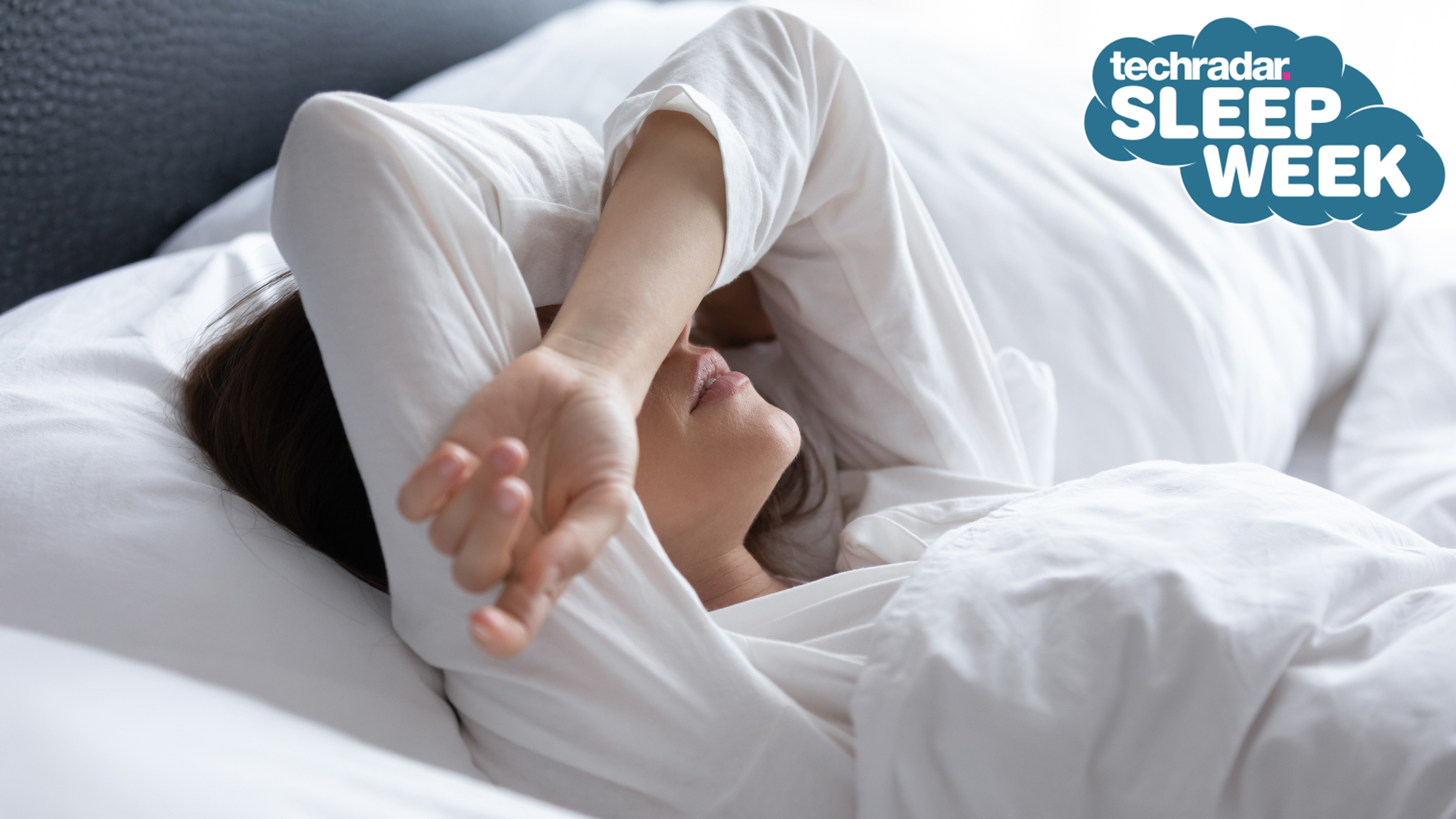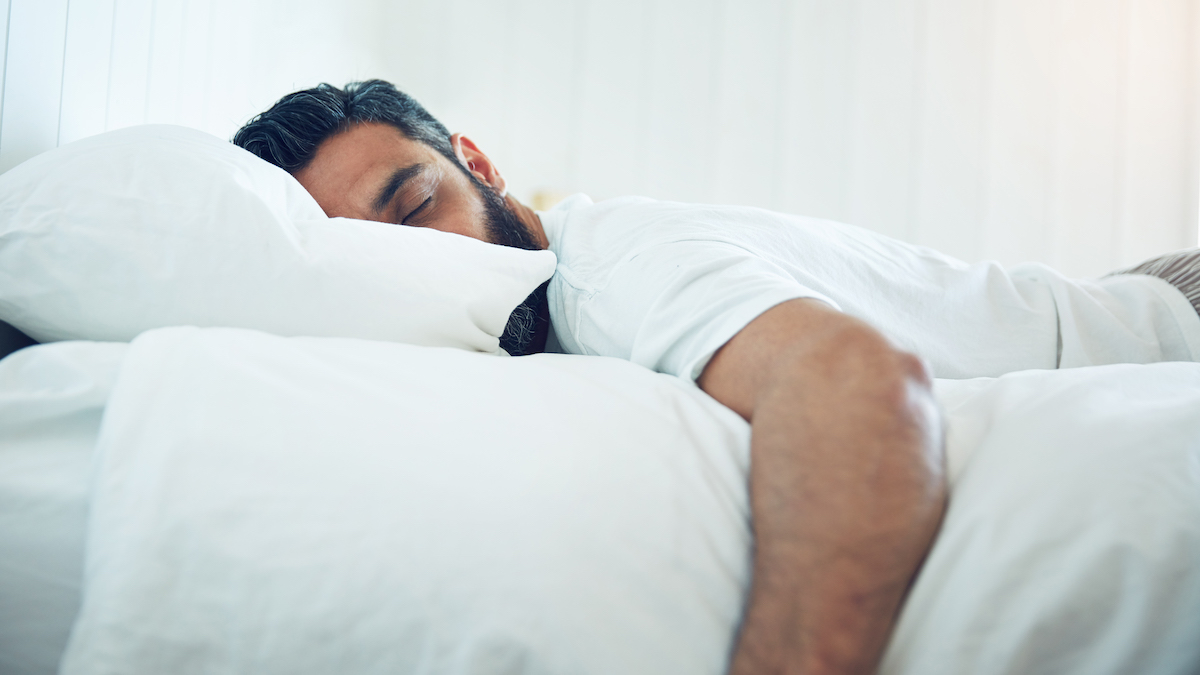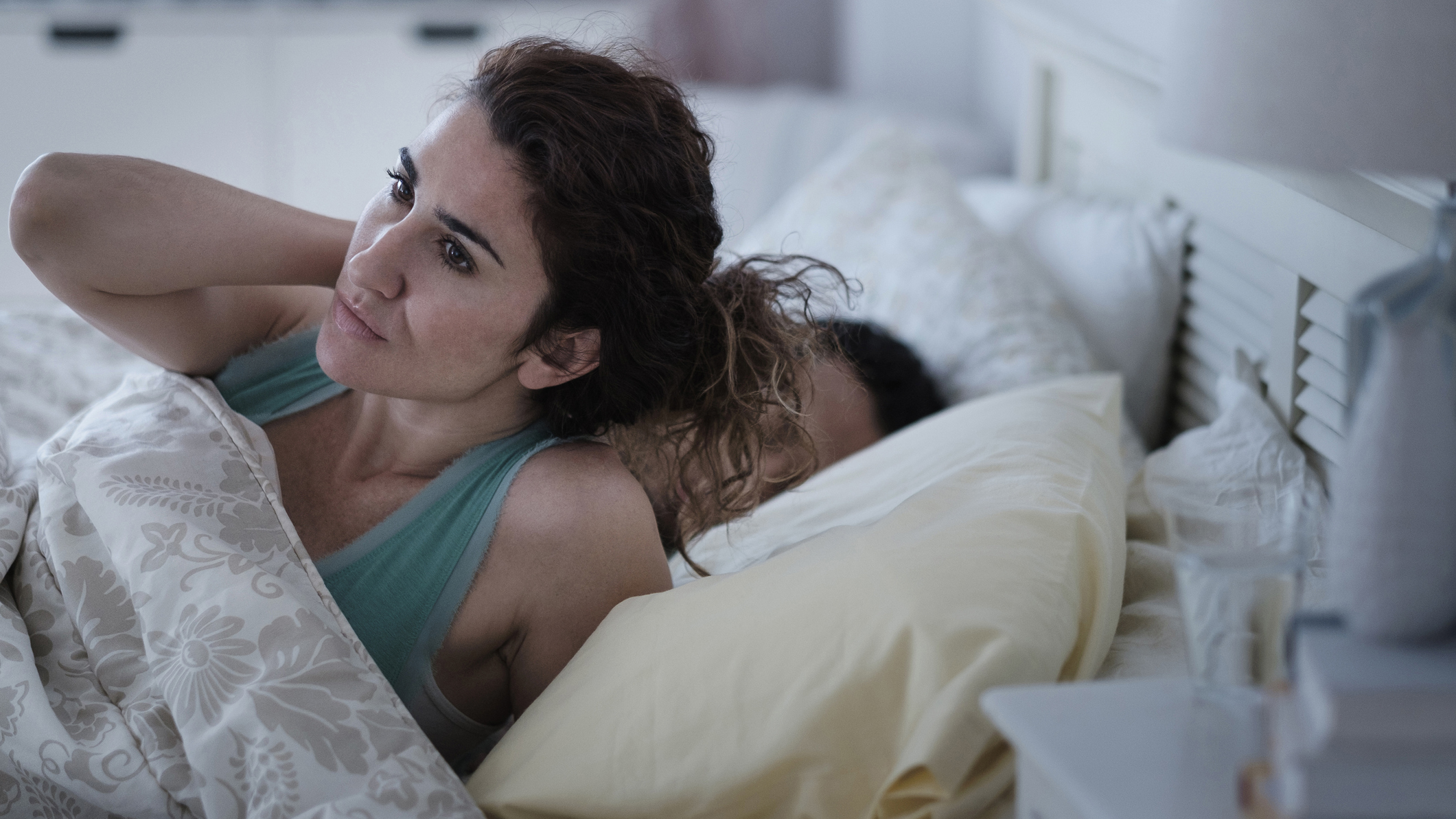The 7 major sleep killers, according to a neurobiologist
Neurobiologist Dr Verena Senn talks us through several possible reasons why you can’t sleep

A good night’s sleep helps us feel physically and mentally healthier. All too often though the chances of getting the rest we need can be hijacked by any number of factors, from poor pillows to pressure point pain, and from noise (including snoring) to night sweats and health conditions such as sleep apnea.
There are an abundance of sleep killers, especially in the post-COVID world, just waiting to put paid to your night’s sleep. But as Dr Verena Senn, neurobiologist and Head of Sleep Research at Emma Sleep, explains, if you can pinpoint some of the biggest ones, you can begin to fight back…
Sleep killer 1: Anxiety
If you’re suffering with stress or anxiety it’s likely that your sleep patterns will be disturbed and the quality of your sleep impacted. Compounding the problem is the fact that a lack of sleep can also worsen any anxiety you may be experiencing. This leads to a vicious circle of stress and insomnia.
Dr Senn suggests meditation as a way of combating anxious feelings ahead of bed. Why? Because slower, more controlled breathing activates the body’s parasympathetic nervous system, bypassing the sympathetic nervous system (responsible for the ‘fight or flight’ response).
“Regular meditation practice also increases the concentration of the brain's ‘tranquilizer’ (the neurotransmitter GABA), helping you to relax,” explains Dr Senn. “Try decelerating your breathing by counting each breath in your head – if your mind starts to wander keep bringing it back to focusing on your breath.”
Read our guide to the best meditation apps to get started.

Sleep killer 2: Long or frequent naps
While a quick nap might seem like a good way of catching up on lost sleep, not least because it can improve everything from your focus to your mood, it’s still something to be careful with.
Get daily insight, inspiration and deals in your inbox
Sign up for breaking news, reviews, opinion, top tech deals, and more.
Frequent naps – or daytime naps that last too long – can create more problems than they solve, disrupting your night’s sleep schedule and making it more difficult to drift off when you want to.
“These issues usually occur when naps last longer than 20 minutes,” explains Dr Senn. “While a quick 20-minute power nap can provide you with an extra boost of alertness, after this you begin to fall into the deeper stages of sleep that can leave us feeling groggy when we wake up.”
Sleep killer 3: Caffeine
Caffeine is one of the worst culprits for scuppering sleep, and while a coffee after dinner or a cup of tea before bedtime is a ritual for many people, it’s one of the worst things you can do.
That’s because caffeine blocks the processes in the brain that allow our bodies to identify signs of tiredness (and cues for sleeping).
“While caffeine affects everyone differently, some studies have found that consuming caffeine even a whole six hours before bed can reduce your time sleeping by one hour,” she reveals. “My tip? Avoid caffeine where you can at least a few hours before you go to bed.”
To help you feel more alert in the mornings, consider using a wake up light, especially through the colder, darker months.

Sleep killer 4: Intensive exercise at night
Regular exercise is vital for good physical and mental health, and while exercise can improve sleep, it’s critical that you do it at the right time of the day. Why? Because physical exertion raises the body’s core temperature and that’s the polar opposite of what your body needs when it’s trying to get to sleep.
“Don’t exercise before bed – it’s a real no-go,” says Dr Senn. “To give your body plenty of time to cool down before bed, exercise should be done in the morning up to the mid-afternoon.” (Here's more on when to stop exercising before bed.)
So vigorous exercise at night is out. But research shows that gentle stretching as part of your bedtime routine can relax you ahead of sleep.
Sleep killer 5: Temperature
It’s not just your body’s temperature that you need to monitor if you’re looking to improve your chances of a great night’s sleep. If your bedroom is too warm, your body won’t cool in the way it needs to for better sleep.
The body’s core temperature fluctuates, usually peaking in the early morning and again in the afternoon, but when it comes to sleep, it needs to cool down significantly. “I recommend keeping your bedroom temperature at around 15.5-19°C to support this,” advises Dr Senn.
Some of the more advanced sleep trackers are designed to monitor your temperature during the night, which could help you discover whether being too hot in bed is one of your biggest sleep killers.

Sleep killer 6: Your bed
It’s one of the most obvious but under-looked issues when it comes to getting the sleep you need, but the quality of your night’s rest can be significantly improved by ensuring you have the best mattress for you.
“It’s important to consider how your hips, legs and head are usually positioned when you sleep and how these areas will be held, to ensure none of these areas are under tension,” explains Dr Senn.
“The support your body - and in particular your spine - gets while you rest can have implications not only for your sleep but in your health more widely. I recommend foam mattresses,” Dr Senn continues. “They offer great support while also being lightweight and easy to transport.”
For the latest discounts on memory foam mattresses, read our guide to Black Friday mattress deals. You could also boost in-bed comfort with one of the best mattress toppers.
Sleep killer 7: The moon
Is the full moon causing your bad sleep? Research suggests the moon might play havoc with sleep patterns, as our circadian rhythms are potentially linked to the four phases of the lunar cycle.
When the moon is at its full and brightest, it can stimulate an increase in the stress hormone cortisol, which keeps us awake by suppressing the production of the sleep-inducing hormone melatonin.
As we explain in our feature looking at how moon phases affect sleep, studies have shown that people have less efficient and less deep sleep just before and during a full moon.
“Using the blue screens of electronic devices in the hours prior to sleep can also have the same effect, so try to avoid them,” says Dr Senn.
This article is part of TechRadar's Sleep Week 2021 (running from Sunday 31 October to Sunday 7 November), our in-depth look at sleep and how to snooze better. We've teamed up with experts in their field to bring you proven sleep techniques and tips to help you drift off easier, and have rounded-up the best sleep kit to transform your bedroom into a den of zen.
Read more:
- Drift off on the comfiest pillows for sleeping
- The best Nectar mattress Black Friday sales and deals
- Saatva Black Friday sale: the best early discounts
Gavin is an experienced journalist and editor who has written for a range of leading publications including The Telegraph, The Guardian and The Observer.